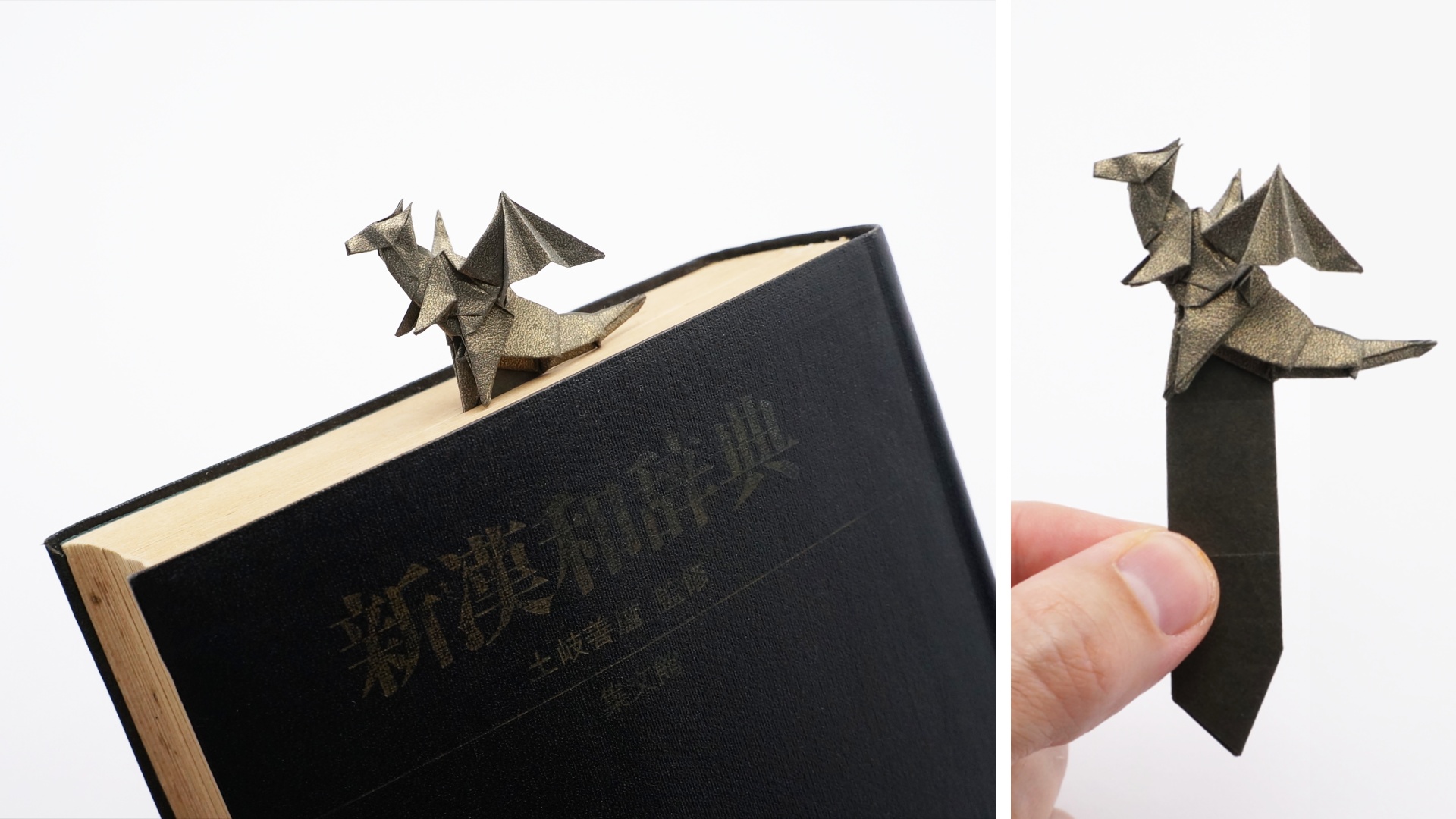Learn how to make an origami Dragon Bookmark
Designed by Jo Nakashima (03/May/2018)
Difficulty level: High intermediate
Now you can have a cute little dragon sitting and guarding the page of your favorite book!
In 2015 I’ve created the original non-bookmark version of the Dragon v1 from a combination of crane and frog bases. But only in 2018, after the creation of the Crane Boomark, many of my viewers requested to do the same with the dragon – and it worked pretty well!
If you think this model is too hard, try also the simplified version: Origami Chibi Dragon Bookmark.
Paper
For this model you’ll need a rectangle with 2:1 ratio (half of a square). I recommend 20cm x 10cm.
It works best if you use a very thin paper, otherwise the layers on one of the sides of the dragon will get too thick and hard to fold or keep the shape. It does work with printer paper for test fold and learning, but don’t expect very good results from it.
These are the papers used in my video tutorial:
- First dragon: 20cm x 10cm Shadow Fold (buy it). This is my recommended size, but it requires good thin paper
- Tutorial: 30cm x 15cm Red Tissue-foil (buy it)
Diagrams
Notice: at first I’ve made these diagrams only for the video, not to be published separately. For this reason, some transitions or steps might not be so clear. If you find some step difficult, you can find more detailed instructions in the video tutorial.

